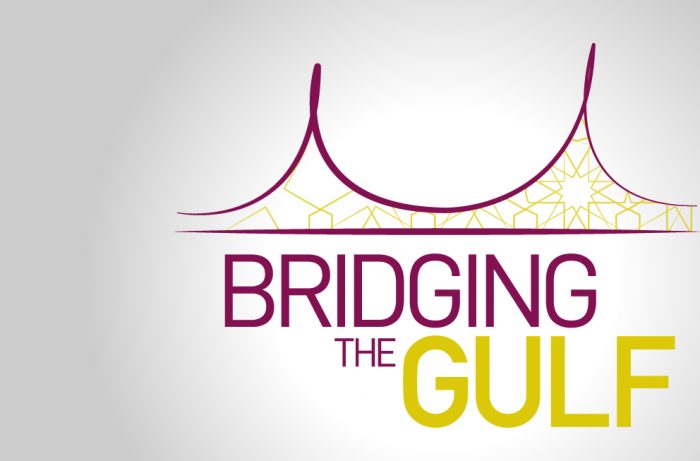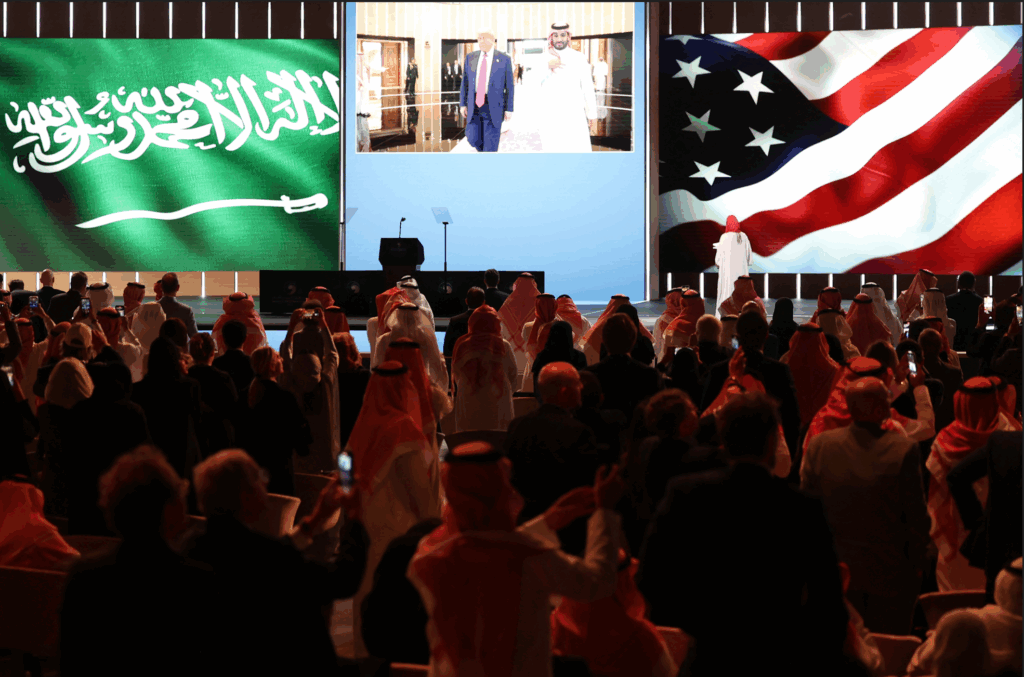
- 08 Jun 2022
[Book Launch] Governance and Domestic Policymaking in Saudi Arabia
(This event is organised by MEI Political Economy research cluster.)
This book aims to provide a more balanced understanding of the contemporary processes of domestic policymaking and governance in Saudi Arabia. Comprehension of these two areas is pertinent given the importance of the government’s economic diversification plans: Saudi Vision 2030 and the National Transformation Program (NTP) 2020, and revised NTP 2.0. This book draws on academics, researchers, policymakers and practitioners with knowledge and experience of domestic policymaking and governance in Saudi Arabia. One of the aims of this edited volume is to analyse the factors that facilitate or constrain effective and viable domestic policymaking and governance in the Kingdom. By bringing together chapters written by scholars and practitioners with first-hand knowledge and experience from a range of social, political, economic and cultural experiences, the book examines various sectors, including labour, defence, health, youth issues, energy, and the environment.
This public discussion examines the progress made in Saudi Arabia’s economic transformation efforts, their implications for state-society relations, and the economics of the rentier social contract, among other issues.
This public talk was conducted online via Zoom on Wednesday, 8 June 2022, from 4.00 pm to 5.30 pm (SGT).
Image caption: Photo of book cover, Governance and Domestic Policymaking in Saudi Arabia, edited by Mark C. Thompson and Neil Quilliam
Listen to the full event here:
Watch the full event here:
Read the Summary of Event Proceedings:
By Daniel Kalish
Intern, Middle East Institute, National University of Singapore
Throughout the hour and a half discussion, the panellists answered questions relating to domestic governance and policymaking in Saudi Arabia, bringing insights both from their contributions to the book and their considerations about the future of the kingdom. A focal point of the discussion was Vision 2030, a set of reforms and targets the country announced in 2016 that it hopes to achieve and reach over the following 14 years. Now almost halfway through that timeframe, policy experts were able to analyse changes that had, and hadn’t, occurred.
Why this book?
Dr Mark C. Thompson said that there are not a lot of publications that focus exclusively on the domestic governance and policy making of Saudi Arabia across many sectors, so the focus of this book is unique and new. He stressed that it provides a different level of enquiry than is usually considered as it focuses on the processes of everyday matters rather than the big picture alone, and for most of the people of Saudi Arabia, it is at this level they feel the impact of policy – whether positively or negatively.
Dr Neil Quilliam used an analogy of the United Kingdom. “If you just look at Boris,” Quilliam said, “that doesn’t really give us a really very good idea of how things are operating in Newcastle or in Scotland at a local, municipal level, and that’s really much more interesting than the theater of Boris”, adding that the book is trying to look deeper into how things function. He noted that a significant change over time is more accessibility – getting in and out of Saudi Arabia and allowing them to “look under the bonnet” to see this local perspective.
What are the major aspects of transformation the kingdom has seen so far?
Dr Thompson stated that an enormous change that has come as a result of Vision 2030 is how people think about their lives and future. With the labour market changing – more women and the younger generation entering the workforce – along with broader social changes as young people have places to go and enjoy, there is a new sense of optimism and drive. He used an example of a trip he made to Taif where he saw new areas constructed with coffeeshops run by young Saudis and employed by Saudi waiters and waitresses. He noted that Riyadh had changed from what people called “the most boring city in the world” to a place that people flock to. “We can talk about tangibles”, Dr Thompson said, “but for me what’s really important is these intangibles in changes in mentalities and how people think about their futures.”
Dr Quilliam reiterated that the transformation is massive and multi-dimensional, while also describing tangibles that don’t reflect the intangibles demonstrating that the path is not always linear. While Saudi Arabia has risen its private sector contribution to the economy to 50.5 per cent in line with its aim of growing from 40 to 65 per cent as part of Vision 2030, it has dropped in the global competitiveness index and the logistics performance index rather than rising, as the targets hoped.
He also noted important environmental changes which might indicate a positive trajectory, with the education minister announcing that philosophy and critical thinking would be added to the high school curriculum in 2017 and “that’s instrumental to bring in fundamental change.” While it may be bumpy, it seems to be moving in the right direction.
Dr Thompson agreed, observing that the transition is ongoing and it’s difficult to draw definitive conclusions at the moment.
MEI Research Fellow Aisha Al-Sarihi, who moderated the talk, stressed the multi-dimensional aspect of Vision 2030 and mentioned that renewable energy and decarbonisation have been named integral parts of the plan. Most recently, the kingdom announced that it would commit to a net-zero target by 2030 and reach 50 per cent energy output from renewable sources by 2030. She asked Ms Jessica Obeid to elaborate on the domestic policymaking of renewable energy, as Ms Obeid had written a chapter for the book on the subject.
Ms Obeid stressed that this chapter matters as you need significant investment to support energy transition measures. She noted that we should expect economies that have excess revenues to have an ease of implementation, yet when we look at the experience of most rich economies they struggle with sustainable development and renewable energy. We also see that there is a direct correlation between sustainable development goals and renewable energy transition in general with good governance. She then highlighted differences between the governance of the oil industry and the renewable industry, noting that the former is heavily dominated by Saudi Aramco but in the latter, there is an endorsing of public options, public-private partnerships, private sector engagement and creating an open market environment. The need for economic diversification is obvious as the economy is dependent on oil exports which leaves it to the whims of oil prices and the market and electricity consumption have been growing at an unsustainable rate. This is because of the growth in population and climate change as rising temperatures are increasing the demand for air conditioning.
She noted that between 2005 and 2016, electricity demand was growing at 6 per cent annually but dropped after 2017 and now we’re seeing a growth of 1.5 to 2 per cent as there has been a shift to energy efficiency measures. There has been a lot of action in the renewable energy sphere, but there has also been a lot of inconsistencies with many updates to renewable targets with the target of 50 per cent of power generation from renewable energy being just the latest. She stressed that there is a high risk that the market will be dominated by a small number of players, however, in the last year there has been a move towards decentralised renewable energy, with many awards being given out including what would be one of the largest photovoltaic power farms in the world at 1.5 gigawatts.
Finally, she noted an interesting pattern in rich economies – when oil prices are high, they have massive revenues to invest in renewable energy, however the political will to do so drops. In Saudi Arabia, we’re witnessing that, despite oil prices being high, we’re still seeing the political determination and will for renewable energies, which is a strong sign for things to come.
You’ve done interviews for the book with youth, the largest segment of the society who account for more than 60 per cent of the population and who have an unemployment rate around 27 per cent. What has the kingdom done to improve the environment for vocational education and training and can you shed light on what the young people said to you in your interviews?
Dr Hanaa Almoaibed responded that there has been progress made on paper and the numbers look great. The last report issued by the Technical Vocational Training Corporation in 2020 highlighted that now 22.7 per cent of high school graduates are enrolled in technical vocational education and training, much higher than their target of 12 per cent. With this, there has been an expansion of partnership to offer training to young people, not just state-owned vocational training centres but partnerships with international organisations. She noted that the center of social status and prestige in terms of your vocation or your job has shifted somewhat. Whereas a few years ago when she conducted interviews for the book, people wanted to be doctors and engineers – the opportunities and scholarships are now more in creative sectors and the prestige has shifted with them. There’s a roadmap now, from a governance perspective, on who is responsible with a lot of work still to be done.
Are we seeing good governance in Saudi Arabia?
Ms Obeid said that while “governance” is a broad term, we are certainly seeing an improved governance of the renewable energy sphere, with stronger investor confidence being built through healthy regulations.
Dr Almoaibed said that there is more accountability now, contrasted with more stagnant institutions before. An example of this, in relation to Vision 2030, is its charge to have more intra-ministry communication, with each ministry having a committee to develop strategies to work with other ministries which prevents stagnation.
What has Saudi Arabia done in terms of retaining local talent?
Dr Almoaibed stated that social transformation has been massive, with many more opportunities to have fun at festivals and other events. This has come with an explosion of culture and creativity coordinated by the country’s Entertainment Commission. While there is still progress to be made to provide employment to people, especially employment that people want to take, there is no issue with brain drain as people want to be part of the opportunities taking place in their homeland.
Do you agree that the UAE and Saudi Arabia are “frenemies”, and how can Riyadh keep up with Abu Dhabi?
Dr Quilliam said that “frenemies” described the relationship “quite beautifully”, elaborating that there are points of commonality and shared interests and there are points of contention and he does not see why that would change over the next 20 years. While Abu Dhabi will be ahead leveraging its unique position, it knows that “the big neighbour next door is catching up.”
Do you also see a competition between the two Gulf nations in the domain of clean energy transition and renewables?
Ms Obeid said that there have been common trends between the two countries, with both creating megaprojects and championing renewable energy, backed by executives and investors. She said that the competition is real and they each hope to reach renewable energy targets and commitments faster than the other.
Electricity capacity in the kingdom is around 80 gigawatts and the current electricity generated from renewables is around one gigawatt. To achieve 50 per cent by 2030 renewable energy targets, they would need to reach almost 40 gigawatts in eight years. Are you optimistic about those targets being reached in time?
Ms Obeid noted that the electricity generated from renewables would have to be more than 40 gigawatts with the increase in demand and the capacity factor to reach the target, stating that it was “ambitious”. With around five gigawatts worth of renewable energy in the pipeline that have been awarded, planned and reached financial close, it is going to take a lot of stakeholders and different renewable energy models, not just mega projects to reach this target.
About the Speakers

Senior Research Fellow and Head of the Socioeconomics Program
King Faisal Center for Research and Islamic Studies (KFCRIS), Riyadh
Dr Neil Quilliam
Energy Research Director, SRMG Think
Managing Director, Azure Strategy Consulting
Associate Fellow with Chatham House’s Middle East and North Africa Programme
Ms Jessica Obeid
Non-resident scholar, Middle East Institute – Washington DC
Fellow at the Lebanese Centre for Policy Studies – Beirut
Senior global advisor for Azure Strategy – London
Dr Hanaa Almoaibed
Research Fellow, King Faisal Center for Research and Islamic Studies
Associate Fellow at Chatham House
Visiting Research Fellow at the London School of Economics Middle East Center
[Moderator] Dr Aisha Al-Sarihi
Research Fellow, Middle East Institute, NUS
Non-resident fellow, Arab Gulf States Institute in Washington
Dr Mark C. Thompson is senior research fellow and head of the socioeconomics programme at King Faisal Center for Research and Islamic Studies (KFCRIS) in Riyadh. He was previously assistant professor of Middle East Studies at King Fahd University of Petroleum and Minerals (KFUPM), Dhahran, Saudi Arabia, (2012-2019) where he taught undergraduate courses in international relations and globalisation. Dr Thompson has lived and worked in Saudi Arabia since 2001 for diverse institutions such as Saudi Arabian Airlines, the Saudi Arabian National Guard and Prince Sultan University. He holds a PhD from the Institute of Arab & Islamic Studies, University of Exeter, UK, where he also taught a course on political reform in the Gulf. His principal research areas are Saudi Arabia’s socio-economic development and societal transformation and he has published on topics such as Saudi youth issues and challenges facing Saudi women leaders in publications such as the British Journal of Middle East Studies, Journal of Arabian Studies, Asian Affairs, Middle Eastern Studies, Middle East Policy; POMPES Studies, Chatham House, King Faisal Center for Research and Islamic Studies and Gulf Affairs. In addition, he published a book with I.B. Tauris Saudi Arabia and the Path to Political Change: National Dialogue and Civil Society (2014). Mark is also the co-editor of the I.B. Tauris book Policy-Making in the GCC: State, Citizens and Institutions (2017) with Dr Neil Quilliam from Chatham House, based on their Gulf Research Meeting workshop in 2015 as well as providing chapters on Saudi Arabia for edited books such as Public Brain Power: Civil Society and Resource Management Palgrave Macmillan (2017).
In 2019, Dr Thompson published his Cambridge University Press book Being Young Male and Saudi: Identity and Politics in a Globalized Kingdom about societal issues and change from the perspective of young Saudi men. He also has another co-edited book with Dr Neil Quilliam Governance and Domestic Policy Making in Saudi Arabia: Transforming Society, Economics, Politics, and Culture (I.B. Tauris, 2022) based on their Gulf Research Meeting workshop in 2019.

Dr Neil Quilliam is an energy policy, geopolitics and foreign affairs specialist with extensive knowledge and experience of the Middle East and North Africa (MENA) region. He is energy research director at SRMG Think, managing director at Azure Strategy Consulting and an associate fellow with Chatham House’s Middle East and North Africa Programme. He headed the programme’s Future Dynamics in the Gulf project.
Prior to that, Dr Quilliam was project director of the ‘Syria and Its Neighbours’ policy initiative and acting head of the MENA programme, having first joined Chatham House as a senior research fellow in 2014.
He has also served as senior MENA energy adviser at the Foreign and Commonwealth Office, senior MENA analyst at Control Risks, London, and senior programme officer at the United Nations University, Amman.
He has lived in Saudi Arabia, Jordan and the UAE and has travelled extensively around the MENA region, working on a variety of development, education and research projects.
He has also published books and articles on international relations and the political economies of Syria, Jordan, Iraq and the GCC states.
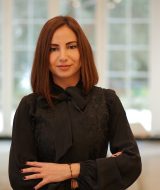
Ms Jessica Obeid is an independent consultant focusing on the energy transition. She possesses unique assets of combining technical and policy expertise and has advised a wide range of public and private sector entities in the Middle East, Africa and Europe.
Additionally, Ms Obeid is non-resident scholar at the Middle East Institute – Washington DC with a dual affiliation in the energy and economics programme and the Lebanon programme. She is fellow at the Lebanese Centre for Policy Studies- Beirut. She also serves as senior global advisor for Azure Strategy – London. From 2017-2018, she was resident fellow at Chatham House’s energy, environment and resources programme – London. Prior to that, she had a decade experience in engineering and was the chief energy engineer at UNDP in Beirut.
Ms Obeid has published widely and regularly provides expert commentary to leading media outlets. She has been awarded the EU Visitors Programme, the UK Foreign and Commonwealth Office International Leaders and the US State Department TechWomen fellowships. She holds a Masters in political sciences with emphasis on negotiations and a BA in electrical engineering from the Lebanese American University.
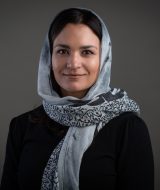
Dr Hanaa Almoaibed is a qualitative researcher who is disrupting understandings of education, work, youth and gender in Saudi Arabia and the Gulf Cooperation Council. Her main areas of interests are related to young people and the different transitions they encounter – within their education, careers, from education to work and within the labour market. She explores the various social factors that influence transition experiences, including gender, socioeconomic status and social background.
Dr Almoaibed is affiliated with several research institutes; she is a research fellow at the King Faisal Center for Research and Islamic Studies and an associate fellow at Chatham House. She is also a visiting research fellow at the London School of Economics Middle East Center where she is leading a project on education in Saudi Arabia called Principals, Pupils and Parents: Understanding the Politics of Schooling in Saudi Arabia.
Throughout her career she has managed several multi-stakeholder projects related to youth and careers, building relationships between private and public sector entities.
She currently advises ZADK Culinary Academy in Al-Khobar on curriculum and strategy and works on multiple initiatives for women empowerment.
Dr Almoaibed obtained her PhD from University College London’s Institute of Education, her MSc from London School of Economics and Political Science and her BA from the University of Washington.
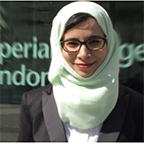
[Moderator] Dr Aisha Al-Sarihi is a research fellow at the Middle East Institute (National University of Singapore) and a non-resident fellow at the Arab Gulf States Institute in Washington. Dr Al-Sarihi’s areas of research expertise and interest include clean energy policy and climate economics, policies and governance, with a focus on the Arab region. Following her PhD, she was a research officer at the London School of Economics and Political Science’s Middle East Centre. She was also a former visiting scholar at Arab Gulf States Institute in Washington and Georgetown University’s Center for Contemporary Arab Studies. Before joining MEI, Dr Al-Sarihi was a research associate in the Climate and Environment Programme at King Abdullah Petroleum Studies and Research Center (KAPSARC). She holds a PhD from the Centre for Environmental Policy at Imperial College London and a MSc and a BSc, with distinction, in environmental science from Sultan Qaboos University.

